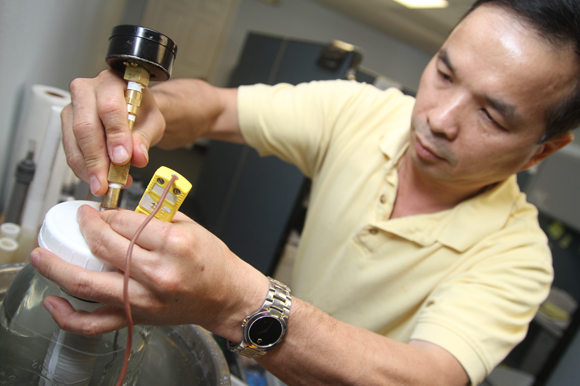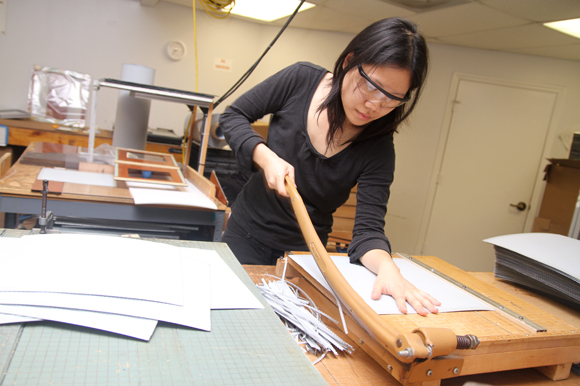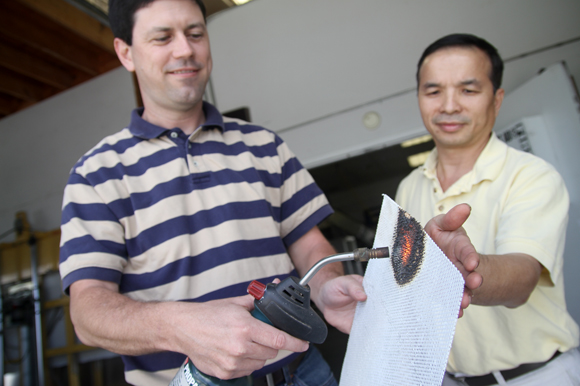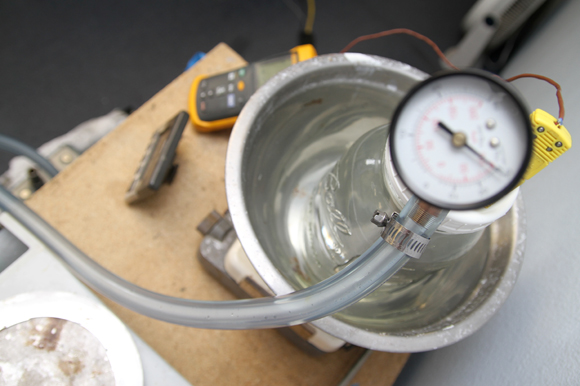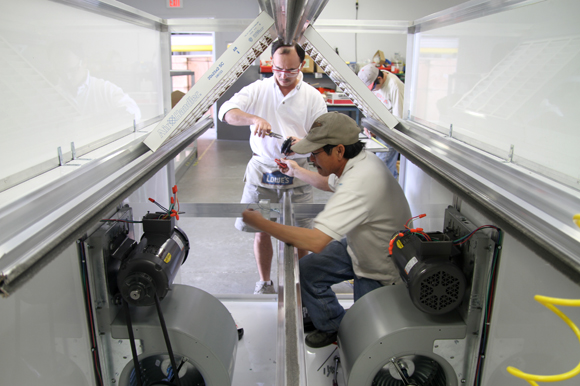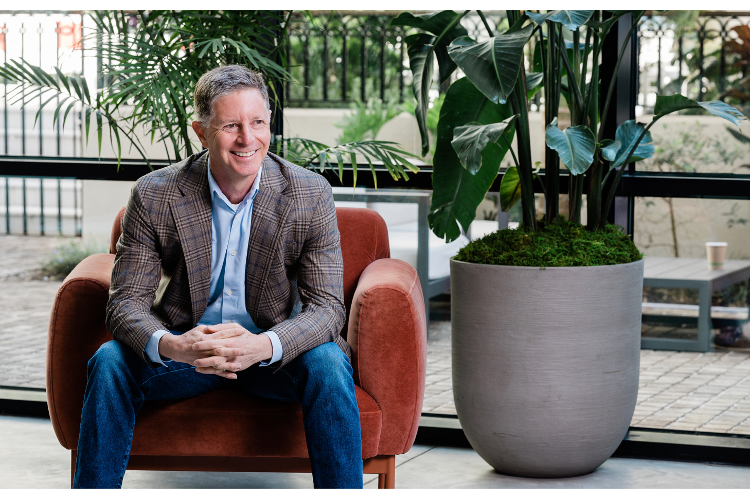Will FL’s Pasco County Rival CA’s Silicon Valley?
Dais Analytic, a Pasco County nanotechnology company, is taking clean, green solutions across the globe, from mostly rural Odessa, just north of Tampa, to some of the world’s most urban regions of China. The anticipated success of the energy and water innovator could also take Tampa Bay to a new place economically.
Could the Tampa Bay region be the next technology hotbed? Tim Tangredi, chief executive officer for Dais Analytic Corp., thinks so. The Odessa-based company, north of Tampa, designs, develops and markets products for heating/ventilation/air-conditioning (HVAC), refrigeration, energy storage, waste water treatment and water desalination, using nano-structured polymer technology.
Dais, pronounced “DAY-iss,” has been garnering much attention since its September 2009 announcement of a five-year $200 million international trade agreement with Genertec-America, an overseas subsidiary of China General Technology Holding (a state-owned company). Dais will export its heating/cooling products as part of the agreement, which is expected to bring an additional 1,000 new jobs to Pasco County over the next five years.
Last week, the company announced an additional $48 million contract with Genertec-America and CAST Systems Control Technology Co. to deliver its waste water cleanup and water treatment processes using nanotechnology that will mean the hiring of as many as 200 production people to fulfill this latest agreement.
Dais Analytic and Genertec-America first met up in 2009 at the World Future Energy Summit, an international conference focused on emerging technologies. It soon became clear to Tangredi that China had a need and Dais had the solutions.
“They’ve been told as a country that they don’t have the time to develop the things they need to help their people, especially as it relates to air and water. They’ve got some serious environmental issues and their government wants them to step it up,” he says.
No More Business as Usual
Tangredi has been on board fulltime with Dais Analytic since 1998. Prior to Dais, he founded Aegis BioSciences, a biotech company using nanotechnology to develop wound dressings and other medical materials. For Tangredi, it was the versatility of nanotechnology that drew him to the field.
“The whole idea behind nanotechnology is that everything is made so small that you can effectively manage it easier, and because of that, tremendous power comes out of that management,” he says. “Because we can control the smallest thing known to man, the molecule, we have an ability to do things with products and services that have never been possible before.”
How does nanotechnology work? Dais HVAC add-on products act much like a filter to improve efficiency and air quality in heating/cooling systems. The company’s energy recovery ventilator ConsERV™ has already earned four industry awards and lowers or raises moisture and temperature content of air being supplied through an HVAC system, enabling the equipment to use less energy with reduced emissions.
With its waste water cleanup product, Dais can clean landfill water by breaking it down into particles at a per billion level (recommended by the EPA) and pulling the water molecules out of it, leaving behind usable water and the hazardous constituents in a powder form that can be disposed of more easily and cheaply. Similarly, its water desalination solution breaks down water into particles so that the salt can be extracted from the water during the cleaning process.
Tangredi says Dais will appeal directly to commercial markets, municipalities and eventually consumers with their products. Despite the potential cost and energy savings, he anticipates some resistance from the water and energy industries.
“Both of these industries have been historically slow to adopt new things but they cannot continue to do business as usual. We don’t have years to make changes, and the government doesn’t have the money. These challenges have got to be taken on by private industry,” he says.
Pasco’s Quiet Innovator
Dais first launched on the campus of Rensselaer Polytechnical Institute in Troy, NY. When it came time to expand, the company appealed to the state for funding, but assistance simply was not there. Dais reached out to other states for economic incentives and soon found an ally in then-Florida Gov. Jeb Bush who welcomed Dais to relocate and grow its business and technology in this state. Tangredi says both the Pasco Economic Development Council and Pasco County have been very supportive. John Hagen, CEcD, serves as president and CEO for the Council, and sees Dais playing an important role in the area’s economic growth.
“Right now, Dais Analytic is the poster child for the New Pasco focus on growing entrepreneurial businesses,” he says.
Hagen notes that his organization has already begun using the Dais agreement to reach out to other businesses about the ease of doing global business in Pasco County.
“Pasco can be a leader on the international stage,” Hagen says. “We currently have identified 94 manufacturers who export from Pasco County. This is a large enough foothold for us to climb to the top in the state.”
Dais’s agreement with Genertec-America will require a large number of engineers, roughly 60 percent for assembly, to help carry out the development and distribution of products to China during the next five years. Tangredi is hopeful about the available talent pool in Florida to help Dais achieve its objectives and points to Randy Berridge, president of the Florida High Tech Corridor Council, as a helpful resource to initiate conversation with some of the state’s top universities. Meetings between Dais and these schools are just beginning to take place, something Berridge sees as a promising first step.
“Our mission statement for years has been to attract, maintain and grow high-tech industry and the workforce to support it. Without that talent, you don’t have an industry,” Berridge says.
He notes that anytime a new industry emerges in a region, it typically draws a cluster of like-minded companies to the area to support and collaborate with that lead corporation. Berridge also is quick to note that the prospect of a nanotechnology cluster developing in Florida is still hypothetical but certainly possible.
Nanotechnology: Florida’s Future?
“It’s early in the process, but everyone seems optimistic and, hopefully, the results of these meetings will be very positive not only for Dais but for Pasco County and the region,” he says.
Hagen agrees that there is great potential for nanotechnology to affect Pasco’s future.
“It is quite realistic to expect that Dais Analytics will become our largest private sector employer in the next five to 10 years,” he says. “They have a technology that works. It is a relatively simple, yet elegant solution, and they are addressing a multibillion dollar problem – clean water. We think it’s going to be huge.”
Tangredi says his company’s agreement with Genertec-America is not about Dais at all but rather the Tampa Bay area charting its course.
“We in Tampa Bay have an opportunity to grab something and make it ours. We can take nanotechnology and become how people think of Silicon Valley in terms of the Internet,” he says. “Nobody has claimed that in the U.S. We have that ability.”
Chris Kuhn is a freelance writer who lives and works in the ‘burbs of Tampa with her husband and her assistant, a 12-year-old dachshund-Chihuahua. Comments? Contact 83 Degrees.

